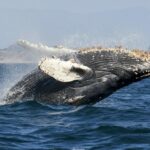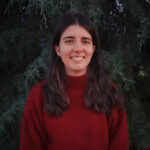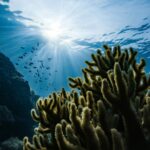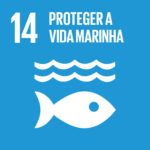
Dominica creates the World’s first sperm whale sanctuary — and helps fight climate change
The sanctuary will conserve the resident population of more than 200 sperm whales living near the Caribbean island of Dominica and sequester carbon off the
We didn't find any happenings mapped to your criteria.
Try the traditional search to find articles not yet mapped with RUA.
We didn't find any happenings mapped to your criteria.
Try the traditional search to find articles not yet mapped with RUA.
We didn't find any happenings mapped to your criteria.
Try the traditional search to find articles not yet mapped with RUA.
We didn't find any happenings mapped to your criteria.
Try the traditional search to find articles not yet mapped with RUA.
Created by the University of the Algarve’s Marine Sciences Center, the Plant a Coral project aims to rescue specimens accidentally caught in fishing nets and increase scientific knowledge about the corals found off the Portuguese coast.
A team from the University of the Algarve’s Centre for Marine Sciences (CCMAR) has created “Plant a Coral”, a program that allows corals accidentally caught in fishing nets to be adopted and coral gardens to be preserved. The money raised will go towards funding coral research projects on the Portuguese coast.
According to the project’s website, thousands of native corals become trapped in bottom fishing nets when they are placed over their habitats, and most of them end up drying out and dying in the nets on the surface. Corals that fall out of nets or are thrown back into the water do not survive, as they are unable to reattach themselves to the substrate.
In collaboration with local fishermen, the CCMAR team rescues these corals – keeping them in seawater tanks until they can be transplanted back to the reef or kept to raise baby corals – and collects data on accidental catches.
This joint work makes it possible to identify biodiversity hotspots, map genetic diversity, carry out thermal tolerance and reproductive biology studies, help with conservation decisions (such as the creation of marine protected areas) and make fishing more sustainable in the long term.
The corals that are transplanted are then monitored over time. Data is collected on the survival, growth and health status of corals in order to improve our knowledge of coral communities.
“The aim of the program is based on two pillars, one of literacy about the oceans, in this case about coral habitats in Portugal, which seeks to improve the public’s perception of the existence, function and importance of these habitats and, in essence, also to disseminate some of the research we have been doing at CCMAR,” said researcher Márcio Coelho, coordinator and co-founder of the project, in statements to the Lusa, quoted by GreenSavers.
Most of the corals come from Sagres or Albufeira, but Márcio Coelho admits to expanding the project to other regions, such as Cascais. The project wants to create “awareness that coral ‘habitats’ exist all over the world. Most coral species are not tropical, they are from cold waters, temperate waters, they are deep sea”.
According to the researcher, corals “play the same role as plants in the terrestrial environment”, contributing to carbon capture and the formation of marine forests that favor the “colonization of many other organisms”.
Corals can be adopted via the project website and donations can be made on a one-off basis or on a monthly or annual basis.


The sanctuary will conserve the resident population of more than 200 sperm whales living near the Caribbean island of Dominica and sequester carbon off the

The reefs have been affected by global warming, but have recovered due to the marine protected areas. A scientific expedition team has discovered that in

This article addresses an action that promotes the conservation and sustainable use of oceans, seas, and marine resources for sustainable development. This SDG aims to prevent and reduce marine pollution of all kinds, particularly from land-based activities.
 To discover businesses that are actively working to contribute to this Sustainable Development Goal, click here.
To discover businesses that are actively working to contribute to this Sustainable Development Goal, click here. To read news, interviews or tips related to this Goal, click here.
To read news, interviews or tips related to this Goal, click here.Esta publicação também está disponível em:
![]() Português (Portuguese (Portugal))
Português (Portuguese (Portugal))

